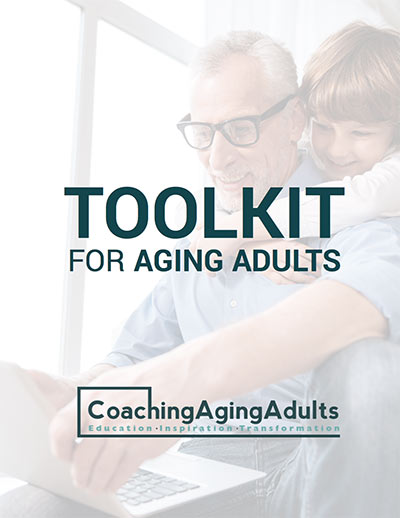Hello caregivers! Stress Management is an essential skill for caregivers. Navigating your role can feel as intricate as cooking pasta al dente without a timer. But fret not, because you’ve got the strength, and I’m here with a toolkit for stress management. In this extensive blog post, we’ll delve into various coping strategies tailored for caregivers, providing practical advice and tools to effectively manage stress in your journey.
Breathe Easy For Stress Management
Deep Breathing
One of the simplest yet powerful stress management techniques is deep breathing. Inhale through the nose, hold, exhale through the mouth – it’s like the culinary art of the wellness world, where simple ingredients have a profound impact. This is an excellent way to practice stress management.
Relaxation Techniques
Explore guided imagery or progressive muscle relaxation. Just as you knead your body’s dough from toes to head, these techniques help release tension and promote relaxation and stress management.
Apps for Relaxation
Discover relaxation at your fingertips with apps like Calm and Headspace. Just click and relax, creating a serene experience similar to Netflix but without the cliffhangers.
The Soundtrack of Your Peace
Music
Whether you prefer Puccini or Pop, music can work wonders to alleviate stress. Just remember to keep the volume down if Heavy Metal is your choice; we don’t want to trade stress for a noise complaint.
Nature Walks
A simple stroll in the park can be your mobile spa day. Birds chirping, leaves rustling – nature’s therapeutic sounds come free of charge, with no spa bill.
Sunshine Moments
Sit in the sun, soak up that vitamin D for at least 10 minutes. It’s like nature’s antidepressant without a prescription.
Communication is Key
Reconnect
Reach out and touch someone. Despite the challenges, taking the time to call someone or share your struggles is a life-saving act for your mental health and the person you care for.
Silver Linings
The Re-Evaluation
Decide what truly matters to you. It’s time to break free from automatic pilot mode, reconsider habits and rituals, and discard those that no longer make sense or are unhealthy for you.
Structured Living
For those floating through their day, it’s calendar and organization time! Think of it as rewriting your life’s screenplay. Consider the possibilities and how you want to shape your life.
Backup Plan
Identify who you can call for help and establish a solid backup plan. Having a robust support system is crucial for maintaining your well-being.
Physical and Mental Exercise for Stress Management
Shake it Off
Exercise or dance like no one’s watching. Physical activity is a great way to relieve stress and boost your mood.
Temperature Tricks
Whether it’s a hot or cold shower, it’s like a reboot for your body’s operating system.
Mindset Mantras
Address the itty bitty shitty committee in your head. Don’t let them hold a meeting without your permission. Consider journaling or consulting with a therapist.
Change of State
Move, walk, or distract yourself. A change of state can change your fate, or at least your feelings about your current situation.
Creative Outlets for Stress Management
Journaling
Provide your thoughts with a playground – let the paper be that place.
Reading or Writing
Whether it’s a book or a poem, let words whisk you away to a better place. Distraction is allowed and is a good coping tool.
Virtual Meet-ups
Catch up online because social distance shouldn’t mean emotional distance.
Clean and Purge
Think of it as “Marie Kondo-ing” your life. Does this stress spark joy? No? Thank it and let it go!
Spending Time Alone
Spending time alone is beneficial for self-reflection and discovering your life’s mission and purpose.
Let’s Laugh a Little
Humor Time
Indulge in comedy movies, stand-up routines, or silly dances. Laughter is the best medicine.
Challenges for Caregivers
Caring for a loved one comes with its unique set of challenges:
Time and Energy: Caregiving responsibilities often demand significant time and energy, leaving little room for self-care and other activities.
Balancing Act: Juggling caregiving with work and other commitments adds stress and pressure.
Emotional Rollercoaster: Caregivers may deal with a range of emotions, including guilt, anger, resentment, and grief.
Burnout Signs: Physical and emotional exhaustion, irritability, mood swings, sleep disturbances, changes in appetite, and feelings of hopelessness or helplessness are signs of caregiver burnout.
Preventing Caregiver Burnout through Self-Care
Making Time for Self-Care Activities
Making time for self-care activities is a significant challenge for caregivers. This is where organization, having a schedule, routine, and calendar becomes critical for both the caregiver and the person receiving care.
Seeking Support
Seeking support from friends, and family, and joining support groups for caregivers is essential. Professional support, such as mental health or coaching, can also be beneficial. Medicare may cover such support if there is a medical necessity.
Setting Realistic Expectations
Setting realistic expectations for oneself and one’s loved ones is crucial. Understanding limitations and establishing achievable goals can prevent unnecessary stress.
Maintaining a Sense of Humor
Maintaining a sense of humor and finding joy in small moments is vital for mental well-being.
Caregiving is undoubtedly a challenging role, but with effective coping strategies, caregivers can navigate the stress and demands that come with it. By prioritizing self-care, seeking support, and incorporating these coping techniques into daily life, caregivers can enhance their well-being and continue to provide compassionate care.
Remember, you’re not alone, and taking care of yourself is an essential part of providing the best care possible. Let this guide serve as a roadmap to help you navigate the often tumultuous journey of caregiving. Incorporate these coping strategies into your daily routine, adapting them to fit your unique circumstances.
As a caregiver, your well-being is not only crucial for your health but also directly impacts your ability to provide effective care. Embrace these tools and techniques as pillars of support, allowing you to thrive in your caregiving role while maintaining your own physical and mental health.
In the grand script of life, with unexpected roles and challenges, you have the power to shape your narrative. Embrace each act with confidence, knowing that you are equipped with the knowledge and strategies to nourish both yourself and your loved ones. Your journey as a caregiver is significant, and by prioritizing self-care, you are ensuring that you can continue to provide the love and support your loved ones need.
So, take a deep breath, embrace the challenges, and remember that you are making a difference every day. You’ve got this!



